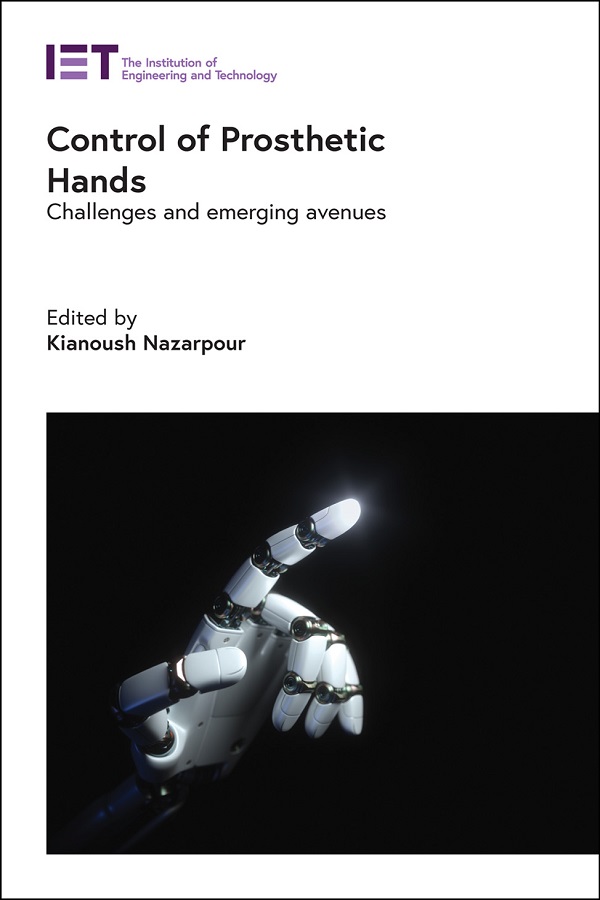- Agricultural Engineering and Technology
- Applied Physics
- Built Environment
- Computing and Networks
- Control, Robotics and Sensors
- Electrical Regulations
- Electromagnetics and Radar
- Energy Engineering
- Healthcare Technologies
- History and Management of Technology
- IET Codes and Guidance
- Manufacturing
- Materials, Circuits and Devices
- Model Forms
- Security
- Telecommunications
- Transportation

Control of Prosthetic Hands
Challenges and emerging avenues
Edited by Kianoush Nazarpour
This edited book brings together research from laboratories across the world, in order to offer a global perspective on advances in prosthetic hand control. State-of-the-art control of prosthetics in the laboratory and clinical spaces are presented and the challenges discussed, and the effect of user training on control of prosthetics to evaluate the translational efficacy and value for the end-user is highlighted.
The book begins with a chapter introducing the fundamental principles, engineering challenges and control solutions for prosthetic hands. Further chapters address methods to design bespoke sockets, magnetomyography, implantable technologies for closed-loop control of prostheses, direct neural control of prostheses via nerve implants as well as user-prosthesis co-adaptation, and two chapters on prosthetics for children. The book concludes with a chapter by Dr Nazarpour on the future of myoelectric prosthetics control, with particular focus on the successful translation of research advances into real clinical gains.
The book is essential reading for anyone involved in research or undertaking advanced courses in prosthetic design and control. It provides an in-depth exploration of this rewarding topic, by exploring technologies with the potential to improve the quality of life of upper-limb prosthetic users.
About the Editors
Kianoush Nazarpour holds a Readership in Biomedical AI at School of Informatics, The University of Edinburgh. His research is motivated by the potential of technology to restore function to individuals with disability. He has authored over 110 peer-reviewed articles in peer-reviewed journals and conferences, and his work has received many awards, including the UNESCO Netexplo 2018 award, for the “Hand that Sees” project with the citation “one of the most promising digital innovations with impact on society and business.”
Publication Year: 2020
Pages: 232
ISBN-13: 978-1-78561-984-7
Format: HBK
Editors: Kianoush Nazarpour
